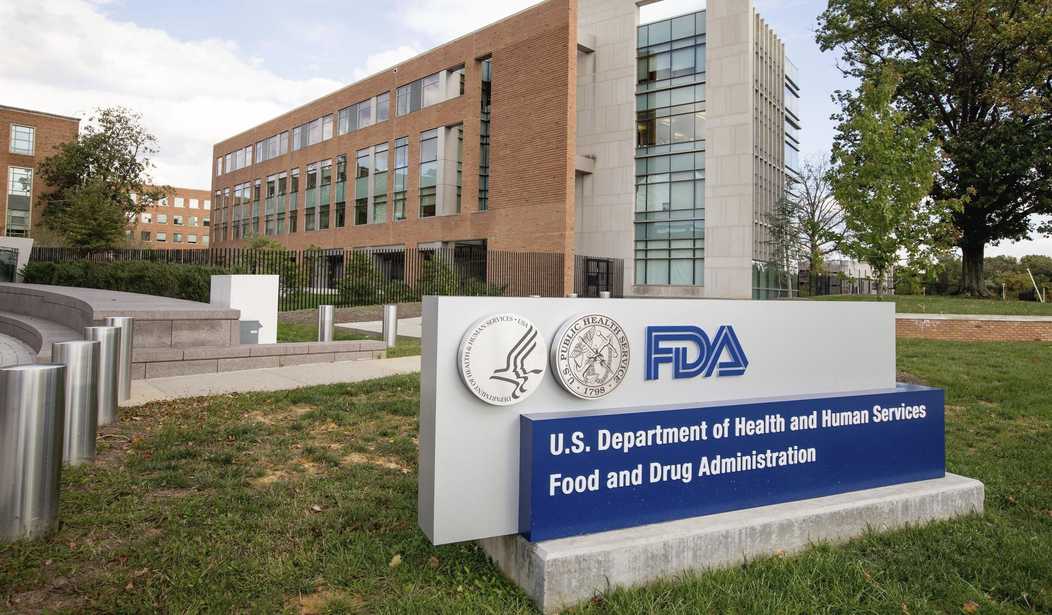One of the accomplishments of the first Trump administration, one that President Trump regularly hyped himself, was the right to try. That is the ability of people “diagnosed with a life-threatening disease or condition” to try medicines still in the trial phase, not approved by the Food and Drug Administration (FDA). In those cases, where all approved and conventional treatments have failed, it gives hope where it otherwise would not be.
So, what happened to that?
The right to try is still the law of the land and is racking up success stories. The Goldwater Institute reports on a Naval aviator who was diagnosed with Lou Gehrig’s Disease and was helped significantly by an experimental treatment. The pilot, Matt Bellina, “was one of the first beneficiaries of the federal law that carries his and a handful of other patient advocates’ names. In 2019, he began receiving an investigational treatment under the law, and within weeks, he experienced improvements in his breathing and physical strength. Matt, a husband and father of young sons, has now significantly outlived his expected prognosis of just two to five years.”
It is impossible to know what would have happened without the right to try, but we know it was good. Matt is still alive.
Of course, the same cannot be said for everyone who exercises the right to try. Life, as we all know, is fragile, and nothing is certain. Illnesses for which there are known treatments still claim lives, as no treatment has a 100 percent success rate. Each individual is different.
One of the biggest problems with prescription drug price controls is that it severely limits the potential profit a company can make during the short life of their patent, thereby limiting what companies will spend resources to research treatments for. There are plenty of ailments that impact a small number of people, and the potential for profit is the only thing motivating treatment development. Without that, there will be fewer treatments sought and only for ailments that impact enough people. That makes right to try all the more important, and the research in gene therapy a wildly important component of it.
Recommended
On the issue of gene therapy, a promising field of development for chronic conditions, the right to try has come up against a roadblock. Tony LoSasso, professor of economics at DePaul University, wrote in The Wall Street Journal of a gene therapy called Elevidys, “a gene therapy approved by the Food and Drug Administration for a form of Duchenne muscular dystrophy. This devastating progressive disease robs children of their ability to walk, breathe and live independently. In 2023 the drug was approved based on encouraging results in a small trial, as is typical in the world of rare-disease research.”
Unfortunately, families with children suffering from Duchenne have been on an additional and unnecessary rollercoaster as the FDA abruptly halted and resumed shipments for ambulatory patients in recent weeks. Non-ambulant patients are still waiting for access to Elevidys to be reinstated.
The Washington Post reported the therapy sought “accelerated approval, designed by the FDA for drugs that treat patients suffering from severe diseases with few effective therapies.” Now, many sufferers of Duchenne will have one less option in a field that is very few. What about the right to try?
As a parent, I can tell you I finally understand what my parents were talking about when they said there was nothing they would not do to try to help me and my siblings. Imagine the government getting out of the way, then getting back in it.
Horrible. Speaking of horrible, a friend who knows I have an interest in this topic reached out to me to inform me of what they’d come across – a LinkedIn post in which the “Chief, Oncology Branch 1” at the FDA appears to have written in a comment that a drug to treat cancer – melanoma (skin cancer, specifically – stated that “the BLA clinical team thought the applicant had provided adequate evidence to support contribution of effect of the RPI to nivolumab but leadership did not agree.”
What does this mean? It sure seemed like it means FDA leadership under FDA Commissioner Martin Makary, for whatever reason, overruled researchers and clinicians on a drug called Replimune, which is described as “a viral-based treatment from Replimune Group intended for patients with advanced skin cancer.” If that sounds a little complicated, that’s because it is. It’s also wildly interesting and important, and you can read all about it from the man, Sean Khozin, who the oncologist was replying to in the now-deleted comment.
Derek Hunter is the host of the Derek Hunter Show on WMAL in Washington, DC, and has a free daily podcast (subscribe!) and author of the book, Outrage, INC., which exposes how liberals use fear and hatred to manipulate the masses, and host of the weekly “Week in F*cking Review” podcast where the news is spoken about the way it deserves to be. Follow him on Twitter at @DerekAHunter.
Editor's Note: President Trump is leading America into the "Golden Age" as Democrats try desperately to stop it.
Help us continue to report on President Trump's successes. Join Townhall VIP and use promo code FIGHT to get 60% off your membership.
























Join the conversation as a VIP Member